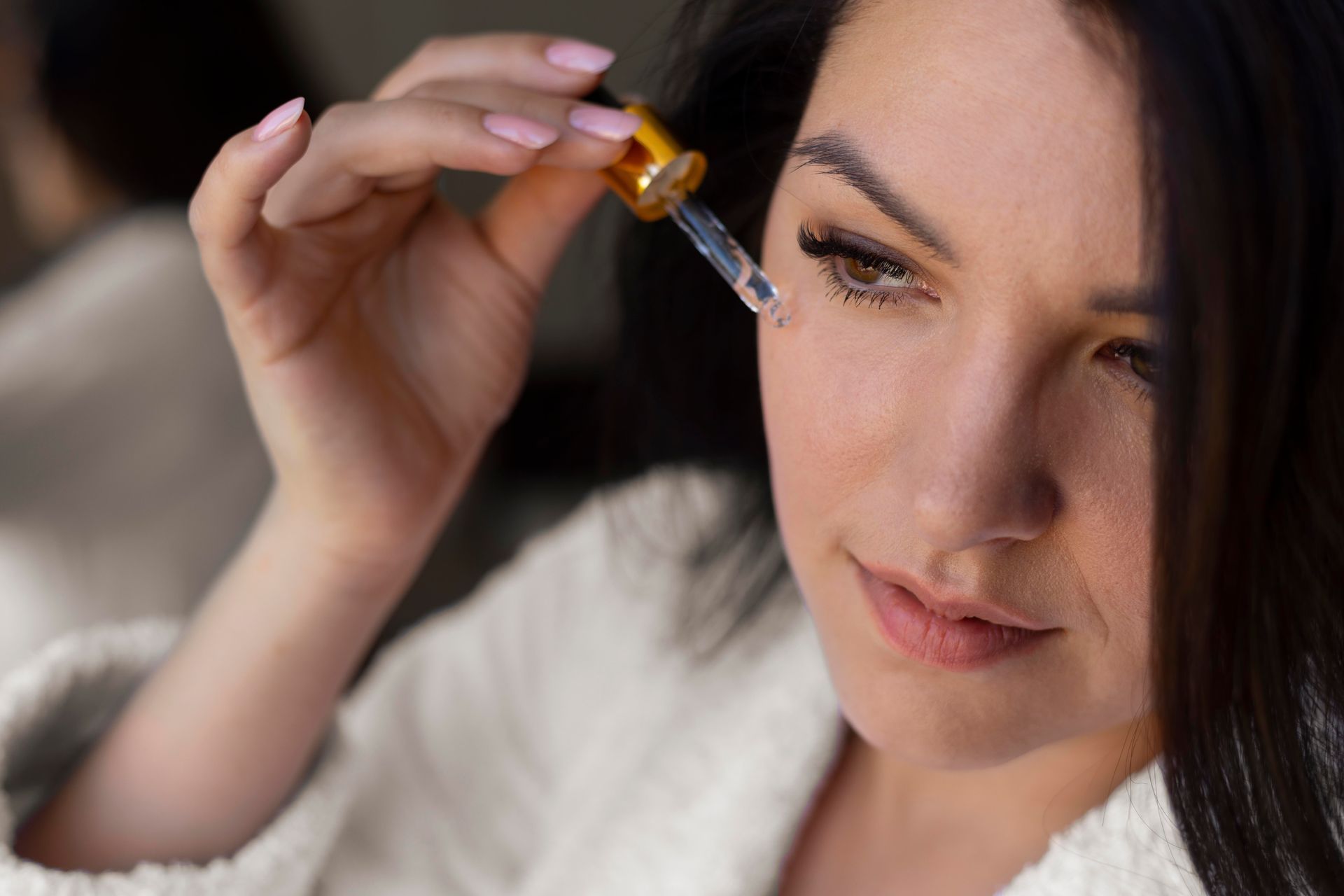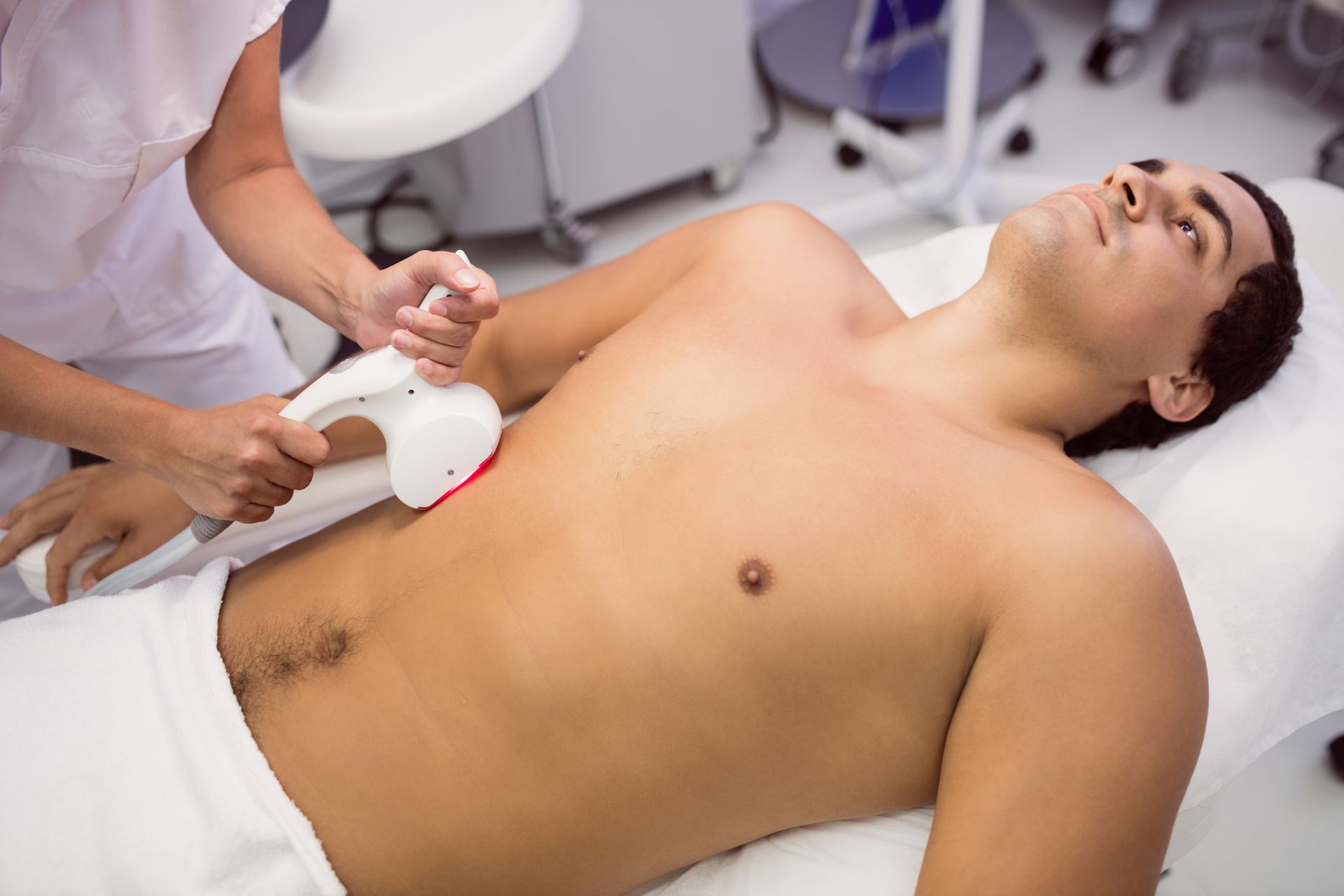Can You Do Brazilian Laser Hair Removal On Your Period?
The question of whetherBrazilian laser hair removal can be performed during menstruation is one that often arises among individuals considering this popular cosmetic procedure. With laser hair removal gaining widespread popularity for its long-term effectiveness inachieving smooth, hair-free skin, understanding the implications of scheduling sessions during menstruation is crucial for those seeking optimal results and comfort.
As part of this comprehensive guide, we explore the intricacies of Brazilian laser hair removal during menstruation. We explore the physiological changes that occur during menstruation, shed light on how laser hair removal works, and address safety concerns associated with undergoing the procedure. We also provide expert insights and practical tips to help individuals confidently make informed decisions and navigate the process.
By gaining a deeper understanding of the interplay between menstruation and laser hair removal, readers will be equipped with the knowledge needed to approach their treatment journey responsibly and effectively, ensuring both safety and satisfaction in pursuit of smoother, hair-free skin.
Getting To Know Your Menstrual Cycle
The menstrual cycle is a natural process that occurs in the bodies of people with female reproductive systems. It involves several phases, each characterized by specific changes in the body's hormones and reproductive organs.
Phases of the Menstrual Cycle
Menstruation:The cycle begins with menstruation, also known as the period. This phase typically lasts 3 to 7 days and involves the shedding of the uterine lining, which exits the body through the vagina as menstrual blood.
Follicular Phase: Following menstruation, the follicular phase begins. During this phase, hormone levels, including estrogen and follicle-stimulating hormone (FSH), rise, stimulating the development of follicles in the ovaries.
Ovulation: Around the middle of the menstrual cycle, typically between days 14 to 16, ovulation occurs. This is when a mature egg is released from one of the ovaries and moves into the fallopian tube, where it may be fertilized by sperm.
Luteal Phase:After ovulation, the luteal phase begins. During this phase, the ruptured follicle transforms into a structure called the corpus luteum, which produces progesterone. If the egg is not fertilized, hormone levels decline, leading to the start of a new menstrual cycle.
Hormonal Fluctuations During Menstruation
Estrogen:
Estrogen levels fluctuate throughout the menstrual cycle, peaking during the follicular phase. This hormone plays a key role in regulating the menstrual cycle and preparing the body for ovulation.
Progesterone:Progesterone levels rise during the luteal phase, following ovulation. It helps prepare the uterus for possible pregnancy by thickening the uterine lining. If pregnancy does not occur, progesterone levels decrease, triggering menstruation.
Overall, the menstrual cycle is a complex interplay of hormones and physiological changes that prepares the body for potential pregnancy. Understanding its phases and hormonal fluctuations can provide insights into various aspects of reproductive health and fertility.
Brazilian Laser Hair Removal: How It Works
Brazilian laser hair removal is a revolutionary method designed to provide long-lasting smoothness in the intimate area.This procedure works by targeting the pigment, or color, in the hair follicles. A specialized laser emits concentrated light energy, which is absorbed by the pigment in the hair follicles. This energy is then converted into heat, effectively damaging the follicles and inhibiting future hair growth. Since hair grows in different stages, multiple sessions are typically required to achieve optimal results.
During a laser hair removal session, the technician will carefully calibrate the laser to target specific areas, such as the bikini line or entire pubic region, based on your desired outcome. The laser is directed at the skin surface, penetrating to reach the hair follicles beneath. Once absorbed by the pigment in the follicles, the heat generated by the laser destroys them, preventing further hair growth in the treated area.
The laser energy is precisely aimed at the hair follicles, bypassing the surrounding skin tissue. This targeted approach ensures effective results while minimizing the risk of damage to the skin. However, it's essential to undergo treatment from a qualified and experienced professional to ensure safety and efficacy.
Safety Concerns During Menstruation
There are some considerations to keep in mind regarding laser hair removal during menstruation. Despite common misconceptions, there is no evidence to suggest that the procedure is unsafe or less effective during this time. However, hormonal changes during menstruation can affect skin sensitivity, potentially leading to increased discomfort during the treatment session.
One common misconception is that
laser hair removal is unsafe or less effective during menstruation. However, this belief is not supported by medical evidence. While some individuals may experience heightened sensitivity or discomfort during their period, it should not affect the safety or efficacy of the procedure.
During menstruation, some individuals may experience increased
skin sensitivity or irritation, which could impact their tolerance for laser hair removal. It's essential to communicate any concerns or discomfort with your laser technician, who can adjust the treatment accordingly and provide guidance on managing potential side effects. While there may be some discomfort or sensitivity during laser hair removal sessions conducted during menstruation, the procedure remains safe and effective when performed by a qualified professional.
Expert Advice: What Professionals Say
Dermatologists and laser technicians provide valuable insights into the safety and efficacy of laser hair removal, including recommendations for scheduling sessions. According to dermatologists, laser hair removal is generally safe and effective for most individuals, regardless of their menstrual cycle. A renowned dermatologist emphasizes that there is no medical evidence suggesting that laser hair removal is less effective or unsafe during menstruation. Therefore, individuals can schedule laser sessions based on their convenience, without worrying about the timing of their menstrual cycle.
Recommendations for Scheduling Laser Sessions
While there is no medical necessity to avoid laser hair removal during menstruation, some individuals may prefer to schedule sessions at a different time for personal comfort reasons. Dermatologists and laser technicians offer the following recommendations for scheduling laser sessions:
- Consider schedulinglaser sessions during the follicular phase of your menstrual cycle, which typically occurs in the days following menstruation. During this phase, hormone levels are more stable, and skin sensitivity may be lower.
- If you experience increased discomfort or sensitivity during menstruation, communicate openly with your laser technician. They can adjust the treatment parameters or provide additional measures to enhance your comfort during the session.
- Wear comfortable and breathable clothing to your laser hair removal appointment, especially if you're menstruating. Loose-fitting garments can help minimize any potential discomfort during the procedure.
- Maintain good hygiene practices, including showering before your appointment and using unscented hygiene products. This helps ensure a clean and comfortable treatment experience for both you and your technician.
Tips for Managing Laser Hair Removal During Periods
Managing laser hair removal during menstruation requires practical tips to ensure comfort and hygiene:
- Prior to your laser session, use appropriate menstrual products, such as tampons or menstrual cups, to manage menstrual flow effectively.
- Inform your laser technician if you're menstruating so they can accommodate any special requests or concerns you may have.
- Practice relaxation techniques, such as deep breathing or visualization, to help alleviate any anxiety or discomfort associated with the procedure during menstruation.
- Drink plenty of water before and after your laser session to stay hydrated and maintain overall well-being.
By following these expert recommendations and practical tips, individuals can effectively manage laser hair removal sessions during menstruation while ensuring a safe and comfortable experience.
Alternatives and Considerations
During menstruation, individuals may consider temporary hair removal options instead of laser hair removal for comfort and convenience. These alternatives include methods such asshaving, waxing, or usingdepilatory creams. While these methods provide temporary results, they can be effective for managing hair growth during menstruation. However, it's essential to consider the pros and cons of each option and choose the one that best fits your needs and preferences.
Temporary Hair Removal Options During Menstruation
Temporary hair removal methods, such as shaving or waxing, offer quick solutions for managing hair growth during menstruation. Shaving involves using a razor to remove hair from the surface of the skin, providing immediate results but requiring regular maintenance.Waxing, on the other hand, involves applying a wax mixture to the skin and pulling it off, along with the hair, to achieve smoother skin for a longer period. Depilatory creams work by chemically dissolving the hair, making it easy to wipe away. These temporary options can be convenient during menstruation when scheduling laser hair removal sessions may not be ideal.
Rescheduling Laser Appointments for Optimal Results
For individuals who prefer laser hair removal but wish to avoid treatments during menstruation, rescheduling appointments may be an option. By planning laser sessions outside of menstruation, individuals can ensure optimal results and minimize any discomfort associated with hormonal changes. Laser technicians can work with clients to adjust appointment times and accommodate their preferences for scheduling sessions at the most suitable times in their menstrual cycle.
Conclusion
The question of whether Brazilian laser hair removal can be performed during menstruation is often accompanied by misconceptions. However, understanding the safety considerations, expert advice, and practical tips provided in this discussion empowers individuals to make informed decisions based on their preferences and comfort levels. By dispelling myths and emphasizing the importance of communication with laser technicians, individuals can confidently navigate their laser hair removal journey, ensuring both effectiveness and comfort regardless of their menstrual cycle.










